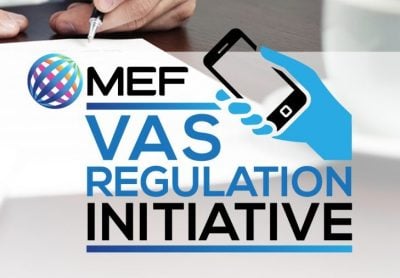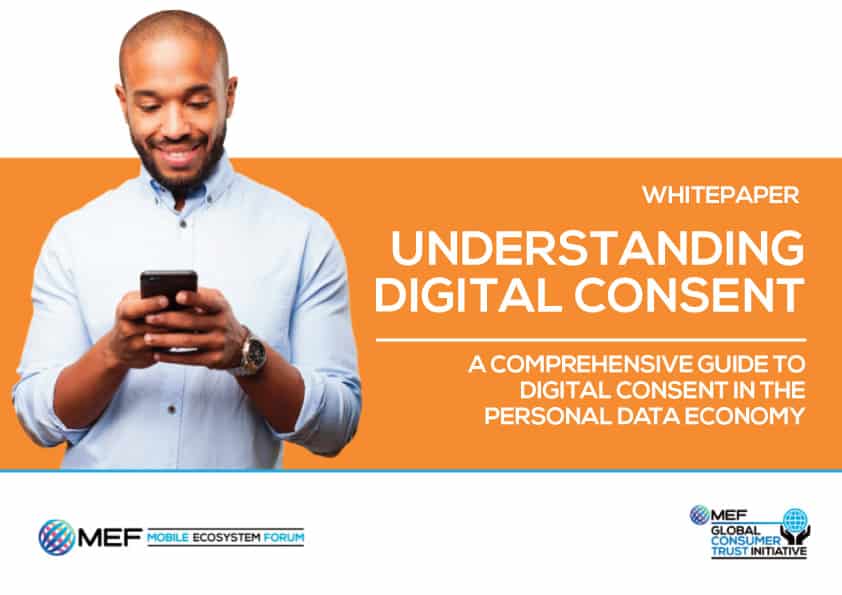
SMS Sender ID Protection Registry
Reduce the impact of Smishing & Spoofing by SMS through industry collaboration
Text messaging scams which trick consumers into sending money or sharing their account details with fraudsters are known as ‘Smishing’ (or phishing by SMS). Criminals send bogus texts which appear to come from a trusted sender.
MEF’s SMS SenderID Protection Registry was established to automate cross-stakeholder processes to reliably and quickly share information to facilitate an orchestrated blocking system. The online platform helps identify and block fraudulent SMS texts, protecting consumers, legitimate businesses and organisations falling victim to text messaging scams. It enables organisations to register the message headers used when sending text messages to their customers and limits the ability of fraudsters to impersonate a brand by checking whether the sender is the genuine registered party.
Codes of Conduct
Trust in Enterprise Messaging Business SMS Code of Conduct
Trust in Enterprise Messaging (‘TEM’) is MEF’s self-regulation service designed to accelerate market clean-up and educate business messaging solution buyers about the threats of fraudulent practices and poor procurement processes. Underpinned by MEF’s global Business SMS Code of Conduct, it aims to tackle different fraud types and promote best practices and mitigation solutions.
VAS in Brazil Code of Conduct
MEF’s Code of Conduct for Value-Added Services in Brazil is recognised by the Brazilian Telecom Authority (ANATEL) and all Mobile Network Operators as well as local and international content providers.
Available in Portuguese and English, it describes best practices relating to effective communication with mobile users, the latest billing methods, the usage of new mobile marketing tools, as well as tackling online fraud and supporting monitoring methods to avoid abusive behaviour.
Best Practices
A2P SMS
Enterprise Mobile Messaging Fraud Framework
Enterprise mobile messaging is a well-established, safe, efficient and cost-effective way for enterprise to build trusted relationships and communicate with their customers. This is reflected in our research which shows that when communicating with companies, consumers trust SMS (short message services) above any other channel. However, if left unchecked, there is a risk that levels of trust amongst consumers and enterprise will fall, impacting the adoption of messaging amongst new enterprise sectors, stifling innovation and ultimately slowing the long-term growth of the industry.
Securing A2P SMS Business Messaging
MEF’s Future of Messaging Programme Security Working Group has carried out an analysis of the end-to-end processes that help secure SMS for business messaging. The Securing A2P SMS Business Messaging Whitepaper explains the messaging delivery chain and sets out clear guidelines for securing SMS for two factor authentication. It explains the technical, device and industry solutions available and provides recommendations to brands and enterprises.
A2P SMS Features Guide
In its mission to accelerate knowledge-sharing across the enterprise mobile messaging delivery value chain, MEF’s Future of Messaging Programme Participants have developed this A2P SMS Features Guide to allow stakeholders to have access to a set of common tools and language to support their understanding of the sector and their discussions about A2P SMS product features and requirements, including mobile network operators, enterprises, messaging providers, SMS aggregators and app developers.
The A2P SMS Features Guide identifies, describes and groups the MNO features which are essential to support a successful A2P SMS infrastructure and assigns them associated levels of compliance requirement to ensure solid coverage around the world and across different roles in A2P service suppliers.
RCS Messaging
Open RCS – Memorandum of Understanding
Players in the RCS industry have got together and developed a joint declaration of open interconnection and common development of the RCS communication platform.
MEF is the secretariat for this initiative. If you would like to become a signatory please contact us at rcs@mobileecosystemforum.com
RCS Business Messaging Best Practices V2.0
Developed by participants of the Future of Messaging Progamme, MEF’s RCS Business Messaging Best Practices Guidelines aim to help accelerate the adoption of Rich Communication Services (RCS) for application-to-person (A2P) and person-to-application (P2A) messaging.
These guidelines were developed by MEF’s working group and via industry consultation in 2019 (V1.0) and 2020 (V2.0) led by David O’Byrne. They provide a framework for the technical and business options for deploying RCS Business Messaging and streamline the processes to enable a faster and more efficient launch of A2P and P2A communication services via RCS.
MEF Guide to RCS Conversational Commerce
There is a major disruption ongoing in communications between businesses and consumers. This includes messaging from the business Application-to-Person (A2P) but also messages initiated by the customer known as Person-to-Application (P2A).
The guide, developed in conjunction with MEF members, also provides recommendations for any business considering deploying RCS P2A messaging.
Personal Data and Identity
Understanding Digital Consent
Rising privacy concerns and imminent data regulation are combining to make consent a key issue for the digital economy. MEF’s Consumer Trust Working Group examines the topic in a new whitepaper: Understanding Digital Consent.
MEF’s Consumer Trust Working Group has explored the big questions around digital consent including how does the law define it? What is best practice for designing consent forms and receipts? How will new regulation such as GDPR affect it? What new technologies might help managing consent easier?
Understanding the Personal Data Economy
The personal data economy, also known as the Internet of Me, the API of Me, M2B, self data, the personal information economy and more, describes a powerful new idea: letting individuals take ownership of their information so they can share it with businesses on their terms.
The free whitepaper has been commissioned on behalf of the MEF Consumer Trust Working Group, a collective of MEF members working to raise awareness of issues surrounding trust in mobile products and services, establish industry best practices and provide practical tools across the mobile value chain, built on the consumer’s informed consent.












